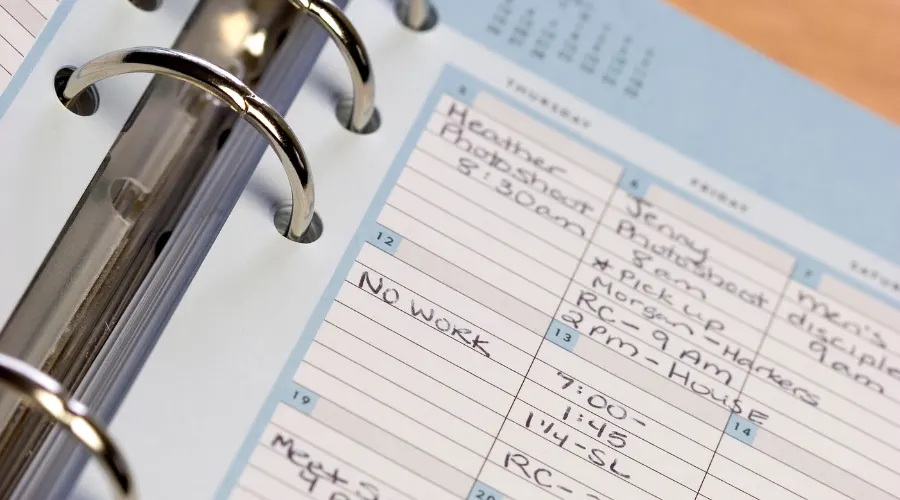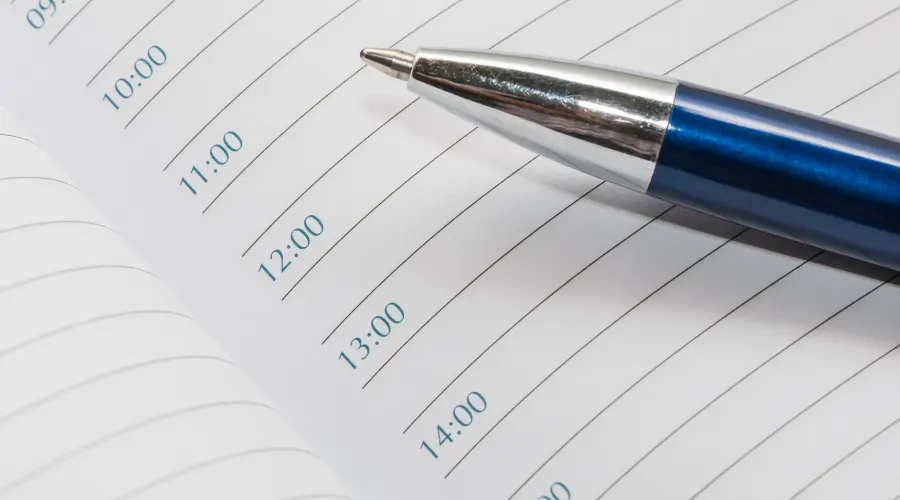Have you ever felt pressured as a student to not finish all your work, such as a class assignment or a social engagement?
Managing all tasks on time can be a challenge when you don’t have a specific routine. With the right daily routine, you can easily navigate through your academic journey.
Understand how important a routine is for you as a student. For this reason, I am going to share some tips with you based on my long experience that you can follow to create a proper and effective daily routine for yourself.
Before diving into the topic of the ideal daily routine for students, let’s first explore why having one is critical to student success.
What is The Ideal Daily Routine of a Student?
I didn’t quite understand it when I first started a daily routine in my student life. I knew that it was important to have a daily routine as a student.
Then I realized after a few months that it doesn’t just matter to have a routine; the key is to have an ideal daily routine that balances academic responsibilities with personal well-being.
This includes waking up early, exercising, eating nutritious meals, going to class, studying, socializing, and getting enough sleep.
Why is it Important for Students to Have an Ideal Daily Routine?

If you want to create a standard daily routine, you first need to be clear about why students need one. Having a structured daily routine offers many benefits to students. Here are some key reasons why you need to create a routine and stick to it:
Time Management: A routine helps you allocate time effectively, ensuring that you can juggle multiple tasks without feeling overwhelmed.
Reduced Stress: Knowing what to expect each day can alleviate anxiety and stress, allowing you to approach your responsibilities with a clear mind.
Improved Productivity: By following a routine, you can optimize your workflow and accomplish tasks more efficiently.
Better Health: A balanced routine promotes physical and mental well-being, with habits like exercise and healthy eating contributing to overall health.
Academic Success: Consistently following a daily routine can lead to better academic performance, as you’re able to dedicate focused time to studying and coursework.
Designing Your Ideal Daily Routine
Now that we understand the importance of a daily routine, let’s explore how to create one tailored to your needs and preferences.

Wake Up Early
Successful students get up early and start their day regularly. Early mornings offer a peaceful atmosphere conducive to productivity and reflection. Aim to wake up at least an hour before your first commitment of the day to allow time for a morning routine.
Morning Routine For Students
A perfect morning routine sets the tone for the rest of your day. Include activities such as meditation, stretching, journaling, or reading to center yourself and prepare mentally for the day ahead.
Exercise
Increase your energy and sharpen your focus by including exercise in your daily routine. Whether it’s a morning jog, a gym session, or a yoga class, find an activity you enjoy and make it a regular part of your routine.
Healthy Breakfast
Start your day with a healthy breakfast that will fuel you throughout the day. Include foods rich in protein, fiber, and healthy fats to sustain energy levels and enhance cognitive function throughout the morning.
Class Attendance
Attend all your classes regularly to stay engaged with course material and build rapport with professors. Active participation in class discussions and activities fosters a deeper understanding of the subject matter and enhances learning outcomes.
Study Sessions
Dedicate specific time slots each day to studying and coursework. Create a study schedule that aligns with your natural rhythm and incorporates breaks to avoid burnout. Use different study techniques to find what works best for you.
Time Management
Use time management techniques such as the Pomodoro Technique or time blocking to optimize productivity and focus. Break tasks into small chunks and complete them based on urgency and importance.
Healthy Meals and Snacks
Maintain a balanced diet by planning and preparing nutritious meals and snacks. Avoid relying on convenience foods high in sugar and processed ingredients, as they can lead to energy crashes and decreased productivity.
Social Time
Make time for socializing and connecting with friends and peers. Social interactions are essential for mental well-being and can provide much-needed support during stressful times.
Evening Wind Down
Create a calming bedtime routine to help you decompress and prepare for a good night’s sleep. Avoid stimulating activities such as screen time or intense studying before bed, as they can interfere with sleep quality.
Quality Sleep
Prioritize sleep by ensuring you get the recommended 7-9 hours of rest each night. Create a sleep-friendly environment free of distractions and establish a consistent bedtime routine to signal to your body that it’s time to sleep.
Implementing and Fine-Tuning Your Routine
Creating your ideal daily routine is just the first step. To reap the full benefits, you’ll need to implement and fine-tune it over time.

Start Small: Begin by incorporating one or two new habits into your routine and gradually add more as you become comfortable.
Stay Flexible: While consistency is key, it’s important to remain flexible and adjust your routine as needed to accommodate changes in your schedule or priorities.
Track Your Progress: Keep track of your daily activities and assess how well they align with your goals and values. Use a journal or planner to log your activities and reflect on what’s working and what needs improvement.
Seek Support: Don’t hesitate to seek support from friends, family, or mentors as you navigate the process of establishing your routine. Surround yourself with positive influences who encourage and motivate you to stick to your goals.
Troubleshooting Common Challenges

Even with the best intentions, sticking to a daily routine can be challenging at times. The following are a few common barriers you might run into and how to overcome them:
Procrastination: Break tasks into smaller, more manageable steps and use techniques such as the “two-minute rule” to overcome procrastination.
Distractions: Minimize distractions by creating a conducive study environment free of clutter, noise, and interruptions.
Burnout: Avoid burnout by scheduling regular breaks, practicing self-care, and seeking support when needed.
Lack of Motivation: Stay motivated by setting clear goals, celebrating small victories, and reminding yourself of the benefits of sticking to your routine.
Final Thoughts on An Ideal Daily Routine for Students
Crafting your ideal daily routine is a powerful tool for student success. By prioritizing your time, health, and well-being, you can navigate the challenges of student life with confidence and ease.
Remember, your routine is unique to you, so don’t be afraid to experiment, adjust, and make it your own. Here’s to a productive and fulfilling academic journey!
Frequently Asked Questions (FAQs)
Finding the right balance requires trial and error. Establish your priorities first, then schedule your time appropriately. Be realistic about what you can accomplish in a day and don’t forget to make time for self-care and relaxation.
Flexibility is key when unexpected events arise. Take a deep breath, assess the situation, and adjust your plans as needed. Remember that it’s okay to deviate from your routine occasionally as long as you get back on track as soon as possible.
The time it takes to form a new habit varies from person to person and depends on factors such as complexity and motivation. On average, it takes about 21 days to establish a new habit, but it can take longer.
Suggested read:

